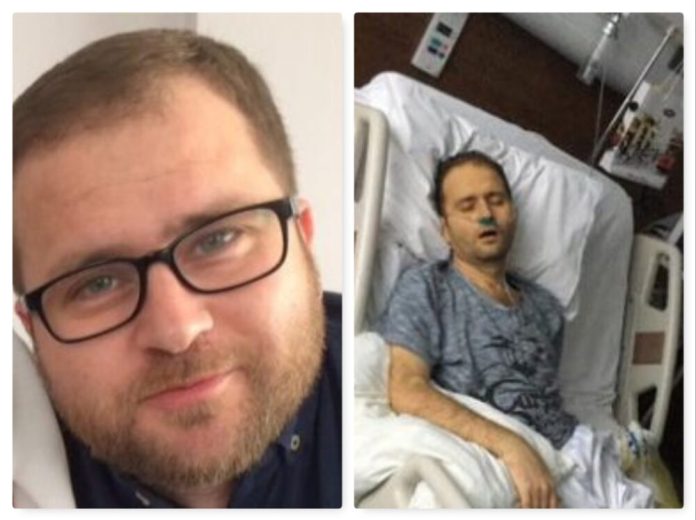The Silivri Public Prosecutor’s Office said there were no grounds for legal action in the case of Deniz Hakan Şen, an inmate who died of cancer after being denied timely treatment and released only two weeks before his death, claiming “he would have died even if he had received treatment, the Stockholm Center for Freedom reported citing Bold Medya.
According to the report, the prosecutor determined that Şen was not taken to a hospital despite losing nine kilos in 10 days and suffering from intense abdominal pain. However, the prosecutor also said that even if Şen had received the correct treatment in a timely fashion, his cancer was far too advanced to respond to treatment.
According to prison records, Şen petitioned the prison administration, saying he was very sick and he could not eat because of his condition. He begged for medical care because he could not function due to the intolerable pain.
In his petitions Şen said he worked as the sales representative of a medical company for 10 years and based on his experience he suspected he had cancer. However, the prison doctor dismissed Şen’s suspicions and did not refer him to a specialist.
One morning Şen collapsed in his cell and was taken to a hospital, where he was indeed diagnosed with late-stage stomach cancer.
Şen was detained in October 2017 for alleged links to the Gülen movement, a faith-based group inspired by Turkish cleric Fethullah Gülen. He was arrested three days later and sent to İstanbul’s Silivri Prison, notorious for its large number of political prisoners.
Turkish President Recep Tayyip Erdoğan has been targeting followers of the Gülen movement, since the corruption investigations of December 17-25, 2013, which implicated then-Prime Minister Erdoğan, his family members, and his inner circle.
Dismissing the investigations as a Gülenist coup and conspiracy against his government, Erdoğan designated the movement as a terrorist organization and began to target its members. He intensified the crackdown on the movement following an abortive putsch on July 15, 2016 that he accused Gülen of masterminding. Gülen and the movement strongly deny involvement in the coup attempt or any terrorist activity.
Şen’s wife, Hüsna Şen, said she would continue to seek justice for her husband who she believes was a victim of gross negligence. “The prosecutor’s decision is full of contradictions. On the one hand there is an admission that there was negligence; on the other hand the prosecutor refuses to allow a full investigation,” she said.
Hüsna Şen said she pressed charges against the prison administration because she believed her husband had been deprived of his right to medical treatment. “Although my husband will never come back, I am pressing charges as a precedent for other cases where inmates have been deprived of their right to treatment,” she added.
Hüsna Şen said she visited the warden of Silivri Prison after her husband’s death. “I asked him why they would not allow my husband to get treated,” she said. “He told me the prison doctor was responsible and that my husband was a victim of malpractice.”
Hüsna Şen said she did not accept this explanation because as an institution, the prison administration was responsible for the conduct of its staff.
Ömer Faruk Gergerlioğlu, a human rights activist and deputy from the Peoples’ Democratic Party (HDP), a left-wing party with majority-Kurdish support, criticized authorities for not releasing critically ill prisoners until it is too late for them to receive effective treatment.
“They refuse to release the prisoners until it comes to the point of no return. They only release the prisoners when they realize they will die soon, not wanting them to die in prison,” he said.
He claimed that prisoners did not have access to proper healthcare facilities such as hospitals or infirmaries.



